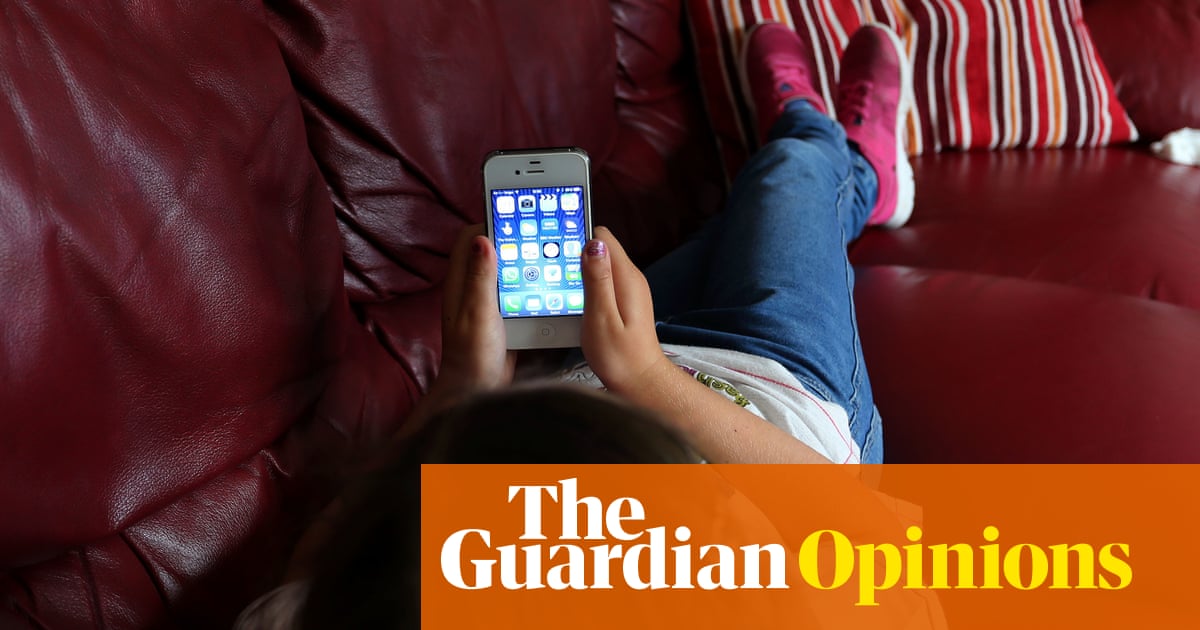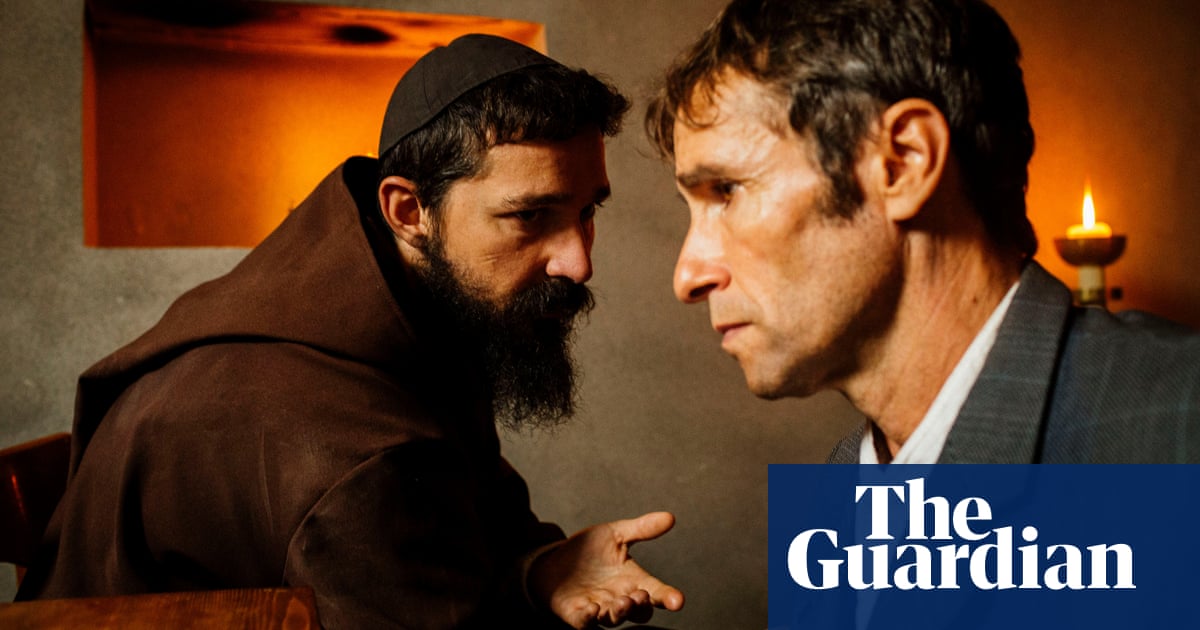
There is one correct way to start an interview with the new host of Mastermind: turn the tables on him – put him in the chair, under the spotlight. He hasn’t prepared a specialist subject, though, so I pick one for him, an easy one: the life and work of Clive Myrie, gleaned from previous interviews and the internet. There may be errors, but I can accept only the answer on the card. It will lead to topics for discussion. He is up for it, he says, although his face says: “WTF?”
The setting – a meeting room at the BBC’s New Broadcasting House – isn’t perfect. The lighting is all wrong. There are chairs, but not the chair. At least I can play the theme on my phone. Bam baba bam, bam baba bam, da da …
“Your name is?”
“Clive Myrie.”
“And your occupation?”
“I am a journalist.”
“Two minutes on the life and work of Clive Myrie, starting now. Myrie attended Hayward grammar school in Bolton. What is the school now called?”
“Oh my God, erm, it … I … It’s disappeared. It’s a comprehensive now, I think, isn’t it? I have no idea. Pass!”
“Myrie’s father and mother, both from Jamaica, were respectively a factory worker and a seamstress who worked for Mary Quant. Quant was one of the designers who took credit for the miniskirt and which other fashion item?”
“God, no idea. Black eyeliner?”
“Hotpants.”
Oh dear, it is not going well. He doesn’t remember that, in an interview with Spotlight on Alumni of the University of Sussex, where Myrie studied law, he said his favourite record was the Bach cello suites played by Paul Tortelier. But he does know that the Verona opera festival, which he and his wife visit every year (the past two excepted), was started in 1913 to celebrate the centenary of Verdi’s birth.
Things get a bit better with his journalism career. Greatest influence? Trevor McDonald – correct. Most memorable event from a life in broadcasting that has involved reporting from Timor-Leste, Kosovo, Iraq, Afghanistan, Yemen and Bangladesh? Covering the Obama election.
“In an interview four years ago, what did Myrie declare to be ‘in a bad place’?”
“Was it Man City?”
“BBC News. What is the name of the man who, in 2019, was jailed after threatening to shoot Myrie?”
“No idea – that name has disappeared.”
“How did Myrie describe … [BEEP BEEP BEEP] I’ve started so I’ll finish … the boxer Tyson Fury in 2015, for which the BBC apologised?”
“I didn’t describe him as anything. I said some people might feel a certain way, which is why I’m still in a job, Sam …”
Not the answer I have on the card. We will come back to that – and the rest.
“At the end of that round, Clive Myrie, you have scored … four points.”
Myrie, 56, takes over the presenter’s chair vacated by John Humphrys next Monday. When we meet, he has just returned from Belfast, having recorded 28 shows – six months of television – in six days. He grew up with Mastermind, which will be 50 years old next year. “I watched Magnus Magnusson on the telly in the 70s in Bolton.”
How is his general knowledge? Is he good at quizzes? “Clearly not,” he says, referring to those miserable four points, before admitting he is quite useful in a pub quiz team. What would be his preferred specialist subject? “American politics, possibly? The history of Manchester City, 1976 to the present? The operas of Puccini? Who knows?” He likes his jazz, too. Not bad, for range.
What is he going to bring to Mastermind? “I’d like to think I’ll bring a friendly face, that I will bring the level of weight that comes from what I do during the daylight hours and have done for the last 30 years. And also I think just a slight difference in tone, perhaps – less the idea that I am part of the problem for the contender. The problems for the contender are the spotlight, the chair, the questions; I am simply the facilitator of them.” A less combative approach, from a man who has reported from numerous war zones.
Myrie has happy memories of growing up in Bolton. The third of seven children, he did well at school (now the Essa Academy, by the way), played football, tennis, the violin and the trumpet, made deputy head boy, all that. Only deputy? “Yeah, I know. I really didn’t like the guy who got the top job.” Whatever happened to him, though? He is not reading the 10 o’clock news, is he? “Exactly!”
Myrie wanted to be a journalist from the age of nine or 10. He had a paper round and started to read what he was delivering – the Sunday Times, mostly. “Harold Evans was a huge hero of mine. And obviously Trevor McDonald – he was the main catalyst. He was reading the news when I was growing up and I saw this guy who looked like me and I thought: ‘Well, if he can do it, maybe I could.’” Alan Whicker was another big influence – the travel and the journalism.
Nonetheless, Myrie studied law at university, after which he got a place at Middle Temple, as well as an offer to join the BBC as a trainee reporter. It was a toss-up between the two – follow his parents’ dreams or his own. “They came over in the 60s, the generation after Windrush, and you don’t travel 6,000 miles, leave everything you know, the sunshine, the beach, to come here for your children to be bums – ie journalists.”
They must have become proud pretty quickly, though, no? “I’m a foreign correspondent, I’m all over the world, I’m winning awards everywhere … were my parents impressed? Not really; not in their heart of hearts. They didn’t think that this was the career they had hoped for until I started reading the news. And now, on top of that, Mastermind. Now, that is, for them, serious proud stuff.”
When he is reporting from Bangladesh on the Rohingya people fleeing Myanmar, or from a Covid ward at the Royal London hospital, you don’t – and shouldn’t – get much of a chance to see who Myrie is (apart from a seriously good journalist). Same when he reads the news. There are little hints. I noticed him saying, on the BBC News channel, that he thought Jodie Whittaker had been brilliant as the Doctor. And there was a simple: “Nice one; now the weather,” at the end of a piece about Charlotte Worthington’s BMX Olympic gold.
“There’s more latitude than you think,” he says. “I don’t think anyone would confuse my presenting style with Kenneth Kendall’s or Richard Baker’s. You can, in the way that you phrase things and in your whole demeanour, bring across something that suggests you’re not just this two-dimensional news robot reading an Autocue.”
He gets to reveal a little more of himself when he does The Papers (that was when he made the Fury comment; we will come to that), or goes on Have I Got News for You or Celebrity Antiques Roadtrip. He is into antiques, isn’t he? “My wife more than I am, to be fair, but I do like a nice well-turned leg, as it were.”
Myrie’s wife, Catherine, is an upholsterer and furniture restorer. How would she, and his friends, describe him? “I hope they would say honest, decent, caring. But also up for a laugh.”
It would be nice to talk to Myrie without talking about racism. But it would be remiss, because of what has been happening in the country and the abuse he has received, throughout his career but more so in the past decade. As well as the shooting threat (from a far-right extremist whose name is best left forgotten), he has been sent excrement, as well as a card with a gorilla on the front and “We don’t want people like you on our TV screens” written on the back.
Mostly, it is online. While filming the extraordinary Covid reports from the Royal London last year, he got an email that read simply: “Clive Myrie is a [N-word].” His producer, who is more tech-savvy than Myrie, looked into it immediately, but minutes later the address no longer existed. It had been created for that purpose, then disappeared.
“It’s not a barrage of hate, because I don’t think overall this country is like that. But you’ve got certain individuals who can spout off because of the anonymity of platforms and the online world – and they can get away with it.”
Social media companies have a lot to answer for, he says. The abuse that Marcus Rashford, Jadon Sancho and Bukayo Saka got after the Euros didn’t surprise him. “People who feel those ideas and thoughts and feel that way can come out with it. The internet is like someone leaving the pub door open at two in the morning and you can hear everything.”
I suggest that the home secretary saying it was OK to boo players taking the knee might not have helped. “I don’t think she said that; I think she said it’s up to people to do what they want to do.” Isn’t that the same? But BBC impartiality has kicked in. It is the same when I mention the B-word – that Brexit might have contributed to the noise coming from the pub. “I have absolutely no idea.”
Does he feel constrained by impartiality? “Yeah, of course. I’m a human being and I’ve got opinions and ideas and points of view.” It’s just that, when he walks through the doors of this building, those points of view need to be invisible. “I am allowed to vote, Sam, but you don’t need to know, the public doesn’t need to know, how I vote.”
Myrie has spoken out about representation in organisations, including his own. That is what he was talking about when he said BBC News was in a bad place. He also said diversity in the editorial hierarchy was “appalling”. The corporation has worked hard to improve the situation, he says now. He and others made representations to the previous director general, Tony Hall. It is better than it was; it is better than some other organisations.
So, is BBC News still in a bad place? “I think when it comes to producers, senior members of the staff and the team and the newsroom, yeah, absolutely, there are issues – no questions about it,” he says. The shop window might look all right, but “you want to go in the shop and have a look around”, he says.
Despite the representation problem, Myrie is proud to have worked for the BBC for his entire career (apart from a year at Independent Radio News). But it is under attack, from multiple directions. You need a flak jacket not just to report from a war zone, but simply to enter the building. “It was ever thus – the BBC has been slammed pretty much since its inception,” he says. But this time it is tricky. “Because there are forces that are really beyond our control, basically because of the power of the internet and audiences migrating, particularly younger audiences, to those platforms. We are in a dogfight for audiences.”
From the newsroom, the way to fight that battle is with the sword of truth. “It’s about maintaining trust, making it as clear as possible to those audiences that the stuff they hear and see is, to the best of our ability, going to be truthful, it’s going to be factual, it’s going to be, at the same time, a reflection of who we are. If you want to understand who we are as a nation and a people, and you want to understand what is going on in the world, come to BBC News.”
Some of the criticism hurts: that some voices aren’t getting heard, that they don’t do enough reporting from deprived communities. He bigs up the work done by his colleagues Michael Buchanan, Alison Holt and Mark Easton. “But it goes under the radar – people don’t alight on it. They will talk about this idea that the BBC is not getting where it should be. I think a lot of the criticism is grossly unfair and it is peddled by people who have an axe to grind.”
What about the funding model? Can it survive in a multiplatform world? Is the licence fee anachronistic – and no longer viable? “People can say that – but you know what? It has worked. It means that, on a big news story that affects most of us, whether it is coronavirus, the death of the Duke of Edinburgh, British troops in Helmand, people feel that they have an investment in this operation that is giving them the news and, as a result, they can trust it. I think that’s important; it’s something that binds the country together.”
It all depends on what kind of BBC you want. Scrap the licence fee “if you want a BBC that is different from the one there is now, that maybe cannot cater to the Béla Bartók fans on Radio 3 because it’s too busy chasing an audience on BBC One. If you want a BBC that provides a service to everybody, or to as many people as possible – people who are invested in it, who see themselves in it whether you are black, a woman or whatever – keep the licence fee.”
And that BBC includes Mastermind. “I go back to the fact it’s half a century old – it must be doing something right to keep going.”
Right, just one more issue to sort out – the Fury one. The answer I had on my card – to the question “How did Myrie describe the boxer Tyson Fury in 2015, for which the BBC apologised?” – is: “A dickhead.” Not true, says Myrie. But I remember it – it was because of Fury’s comments about homosexuality, women and religion.
He challenges me to check, which we do, putting the words “Clive Myrie” and “dickhead” into Google, which thankfully leads to the right story. Here it is: “You cannot be a dickhead and win sports personality of the year,” he says, in 2015, on The Papers, referring to Fury. Nothing to be ashamed of, I say, revealing a bit of yourself post-watershed.
Yeah, but carry on watching, he says. So we do – and it turns out he was channelling the 140,000 protesters who had signed a petition saying Fury should not win the award because of his views. They thought he was a dickhead. Technically, semantically, Myrie may be right. “I think you’ve got it now, at last, Sam,” he says, triumphantly. The BBC only apologised, he says, because a woman in Kent didn’t like the D-word, even post-watershed.
So, Myrie got to keep his job – and I may have to upgrade his Mastermind score by one point. Still, five points on the subject of yourself – not great, is it?
Mastermind starts on 23 August on BBC Two
This article was amended on 16 August 2021. A quote from Myrie said that he didn’t think anyone “would confuse my presenting style with Kenneth Baker’s”; the intended reference was to two different newsreaders, Kenneth Kendall and Richard Baker.












